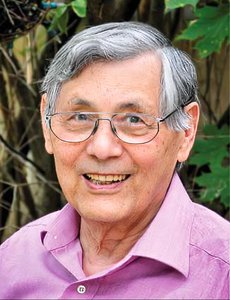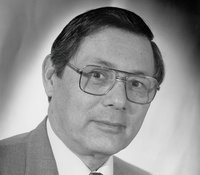The Richard E. Azuma Summer Fellowship hires outstanding undergraduate students, from one of TRIUMF’s member universities in Canada, who are considering a career in research fields associated with TRIUMF’s science program.
The Richard E. Azuma Fellowship is intended to support promising undergraduate students in Canada who are considering a career in research fields associated with TRIUMF’s science program. They will be students who are known amongst peers and teachers as exceptional individuals with a demonstrated track record of talent, passion, and leadership. The Azuma Fellowship is seeking not only students with stellar undergraduate records, but also those with diverse backgrounds, collaborative spirit, creativity, and other attributes that will set them apart as future researchers.
Two Fellowships will be awarded each year to students attending one of TRIUMF’s Member Universities. Students are eligible to hold the paid Fellowship at TRIUMF for four months in the summer break before their final graduating year. Fellows will have the opportunity to choose from a carefully selected list of unique research opportunities. Travel to and from Vancouver, as well as a one-week stay at TRIUMF House, will be reimbursed.
Fellows who later elect to attend graduate school at one of TRIUMF’s Member Universities will be eligible for a $5000 entrance scholarship.
More information on the fellowship can be found here:
https://www.triumf.ca/academic-programs/awards-fellowships/azuma-fellowship
About Richard (Dick) Azuma

Dick Azuma spent his career as as professor in the Department of Physics at the University of Toronto, and was a long-standing member of the TRIUMF community who made seminal contributions to various topics in nuclear astrophysics. Dick was instrumental in establishing the field of experimental nuclear astrophysics in Canada at the University of Toronto accelerator, then later at TRIUMF, where the well-known "Red Giant" experiment to constrain the critical 12C(alpha,gamma)16O reaction was performed by his group using the TISOL facility. That experiment laid the foundation for the ISAC and ARIEL facilities, and rare-isotope science in general, at TRIUMF. He was also one of the original founders of the DRAGON project at ISAC.
With roots at TRIUMF as old as the lab itself, Dick’s research and advocacy supporting the laboratory’s scientific program have had a long-lasting impact. Dick was a passionate educator and fierce defender against prejudice and discrimination made him a valued mentor to a generation of emerging science leaders.
As a Canadian of Japanese heritage, in his early life Dick experienced significant hardship, including internment during the Second World War, due to systemic racism, oppression, and outright violence. After being kicked out of high school in Vancouver at age twelve, Dick worked as a logger until 14, when he was readmitted to high school, eventually achieving the second-highest mark in the provincial exams. Dick went on to achieve his BA and MA in Nuclear Physics at the University of British Columbia, and a Ph.D. from the University of Glasgow.
Dick was a revered mentor, advisor, and teacher for many generations of young and hopeful graduate students throughout his academic career. He instilled in all his love and excitement for nuclear physics, inspiring in them the same commitment and respect for their students as he had for them.
You can read more about Dick here:
https://physicstoday.scitation.org/doi/10.1063/PT.3.2284

